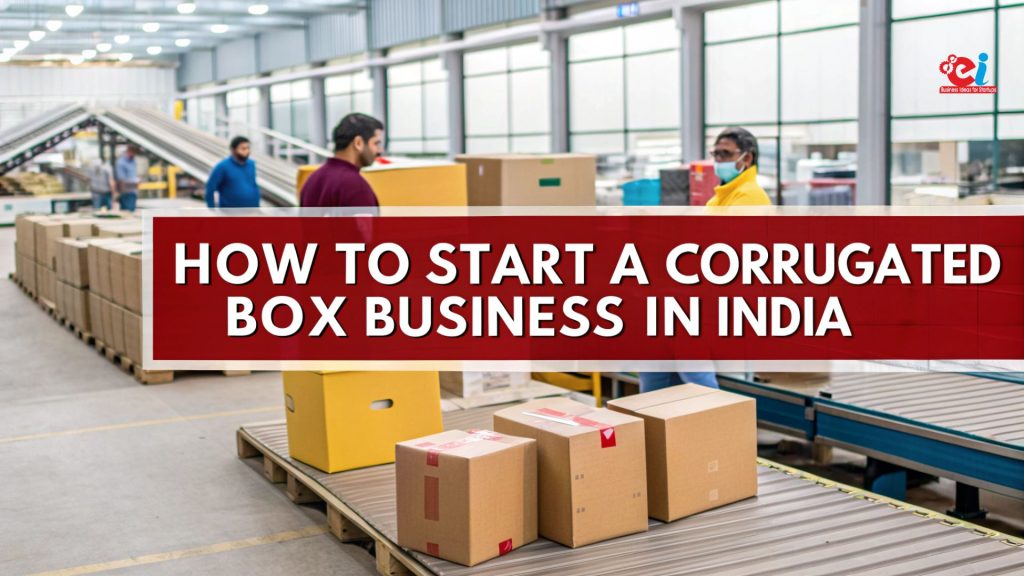The manufacture of maize products in India is an emerging and profitable sector that has shown significant growth over the past decade. As the demand for processed food, industrial starch, animal feed, and bio-based products continues to increase, maize (corn) has become one of the most versatile raw materials for manufacturing across various sectors. India is the sixth-largest producer of maize globally, making this an ideal country for setting up maize-based processing industries.
With rising consumer awareness around health, sustainable packaging, and plant-based ingredients, maize-based products now find applications in food, pharmaceuticals, textiles, paper, packaging, cosmetics, and even biodegradable plastics.
Visit this Page for More Information: Start a Business in Maize Processing Industry
What Are Maize-Based Products?
The maize manufacturing industry involves the processing of corn kernels into a range of value-added products that are used for human consumption, animal feed, industrial applications, and biofuel production.
Major Maize-Based Products:
-
Corn flour and corn grits
-
Corn starch (native and modified)
-
Glucose, dextrose, and sorbitol
-
Corn oil (refined and crude)
-
Maize germ and gluten
-
Maltodextrin
-
High fructose corn syrup (HFCS)
-
Bioethanol and bioplastics
These products serve both domestic and export markets, with a growing demand in sectors like food processing, FMCG, poultry, textiles, adhesives, and pharmaceuticals.
Read our Books Here: Agriculture
1. Market Potential of Maize Products in India
India produces around 35 million tonnes of maize annually, with nearly 60% used in industrial applications. As food and feed industries continue to expand, maize processing has become one of the most attractive agribusiness opportunities in the country.
Key Market Drivers:
-
Increased demand for packaged foods and gluten-free flour
-
Expanding poultry and livestock industry needing high-protein maize feed
-
Growth in bioethanol blending (targeting 20% by 2025)
-
Rising demand for maize-based adhesives and biopolymers in packaging
-
Global push for biodegradable and natural alternatives to plastic
India’s maize processing industry is currently valued at over INR 20,000 crore and is expected to grow at a CAGR of 10-12% in the coming years.
Read Similar Articles: Maize (Corn) Processing and Maize Products
2. Types of Maize Processing Plants
Maize is processed using either dry milling or wet milling depending on the product output.
a. Dry Milling Plants
-
Used for producing flour, cornmeal, grits, and animal feed
-
Lower investment
-
Simpler machinery and operation
-
Ideal for small to medium enterprises
b. Wet Milling Plants
-
Used for making starch, glucose, HFCS, ethanol, and industrial chemicals
-
Requires higher investment
-
Involves complex enzymatic and fermentation processes
-
High-value output, suitable for large-scale production
3. Value-Added Products from Maize Processing
Let’s look deeper into the major outputs from a maize manufacturing unit:
a. Corn Starch
Used extensively in the food, pharmaceutical, textile, paper, and cosmetic industries as a thickener, stabilizer, or binder.
b. Liquid Glucose and Dextrose
Derived from hydrolysis of starch. Used in confectionery, canned foods, soft drinks, and baked goods.
c. Maize Germ Oil
Extracted from corn germ, rich in Vitamin E and low in saturated fat. Popular in cooking and cosmetic products.
d. Corn Gluten Meal
A protein-rich byproduct used in poultry and livestock feed due to its high amino acid content.
e. Maltodextrin
Used as a filler or thickener in beverages, sports supplements, and baby food.
f. Ethanol (Biofuel)
Fermented from maize starch, ethanol is used as an eco-friendly fuel blended with petrol.
Related Feasibility Study Reports: Maize Processing Industry
4. Raw Material and Feedstock Requirements
The most critical requirement is good quality maize grain, which is available year-round across Indian states.
Major Maize Producing States:
-
Karnataka
-
Madhya Pradesh
-
Bihar
-
Andhra Pradesh
-
Maharashtra
-
Rajasthan
Maize varieties such as HQPM, DKC, NMH-920 and others are preferred for processing due to high starch content and better milling yield.
5. Manufacturing Process of Maize Products
Below is a simplified process flow for a maize wet milling plant:
-
Cleaning & Steeping – Raw maize is cleaned and soaked in water for softening.
-
Grinding – Soft kernels are crushed to release starch and germ.
-
Separation – Germ is separated for oil extraction.
-
Centrifugation & Filtration – Starch, gluten, and fibers are separated.
-
Fermentation / Hydrolysis – Used for producing glucose, dextrose, or ethanol.
-
Drying & Packaging – Final products are dried and packaged for sale.
The plant also generates by-products like fiber husk, steep liquor, and bran, which are sold to cattle feed and fertilizer markets.
6. Licenses and Regulatory Approvals
To start a maize products manufacturing unit, the following approvals are usually required:
-
FSSAI license (for food-grade products)
-
Pollution control board (for effluent treatment in wet mills)
-
Factory registration and labour compliance
-
GST registration
-
Drug license (for pharmaceutical starch, if applicable)
-
BIS certification (optional but adds trust)
7. Investment, Machinery & Setup Cost
The total cost depends on the scale of the plant:
For a Small Dry Milling Unit:
-
Area required: 3,000–5,000 sq. ft.
-
Investment: ?25–50 lakhs
-
Machines: De-stoner, hammer mill, siever, packaging unit
Medium Wet Milling Plant:
-
Area: 1–2 acres
-
Investment: ?5–10 crore
-
Machines: Steeping tanks, separators, fermenters, dryers, ETP
For Large-Scale Units:
-
Investment: ?15–25 crore+
-
Complete automation, ETPs, biomass/steam boilers
8. Major Players in India’s Maize Products Industry
-
Gujarat Ambuja Exports
-
Sukhjit Starch & Chemicals Ltd
-
Riddhi Siddhi Gluco Biols
-
Roquette India
-
Anil Ltd
-
Universal Starch-Chem Allied Ltd
Many of these companies export to the Middle East, Southeast Asia, and Europe, while also serving India’s growing FMCG and pharma markets.
9. Challenges Faced in the Maize Processing Industry
-
Seasonal fluctuation in maize prices
-
Competition from multinational starch companies
-
High setup cost for effluent treatment in wet milling
-
Need for cold storage for certain products
-
Market dependency on animal feed and ethanol demand cycles
Still, the sector offers strong margins, especially when diversified across product lines.
Conclusion
The manufacture of maize products in India presents a rewarding business opportunity supported by abundant raw material, rising demand, and a wide range of applications. From flour and animal feed to ethanol and bio-packaging, maize-derived goods are becoming essential across industries. With the right investment, technology, and marketing, entrepreneurs can establish scalable, sustainable ventures that align with India’s Atmanirbhar Bharat and Green Economy goals.
Whether you’re a startup, SME, or large-scale investor, now is the ideal time to explore the maize processing industry.
Watch other Informative Videos: Maize, Corn and its By Products
So, order it now before it goes out of stock.
See More Links:
- Start a Business in Asia
- Start a Business in Potential Countries for Doing Business
- Best Industry for Doing Business
- Business Ideas with Low, Medium & High Investment
- Looking for Most Demandable Business Ideas for Startups
- Startup Consulting Services
- Start a Business in Africa
- Start a Business in India
- Start a Business in Middle East
- Related Videos
- Related Books
- Related Projects
- Related Market Research Reports
NIIR PROJECT CONSULTANCY SERVICES, DELHI
An ISO 9001:2015 Company
ENTREPRENEUR INDIA
106-E, Kamla Nagar, Opp. Mall ST,
New Delhi-110007, India.
Email: npcs.ei@gmail.com
Tel: +91-11-23843955, 23845654, 23845886
Mobile: +91-9097075054, 8800733955
Website: https://www.entrepreneurindia.co
https://www.niir.org





